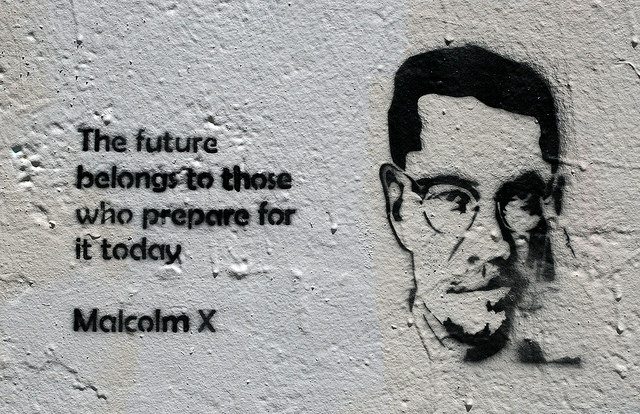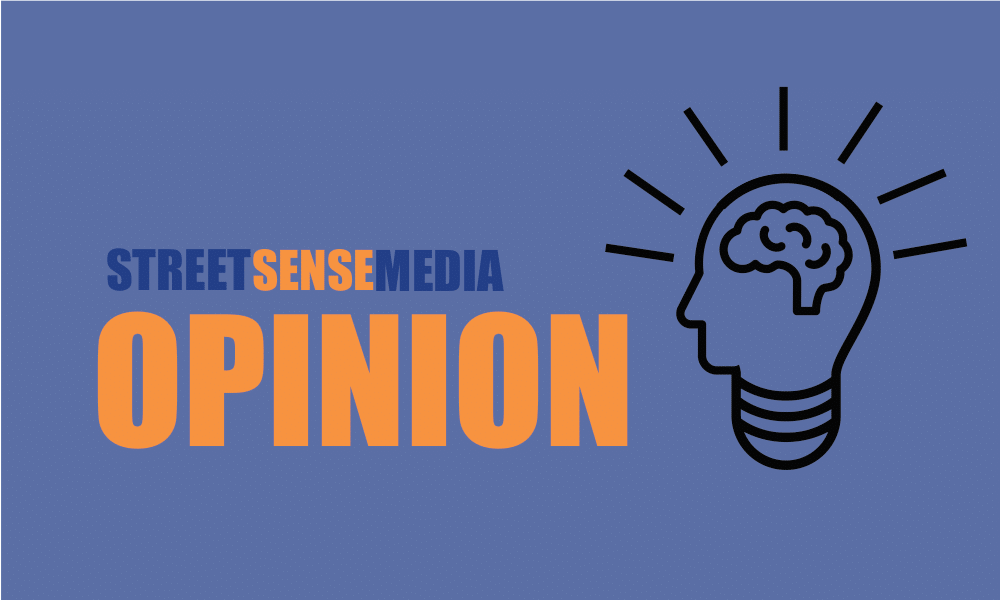Many historians consider Malcolm X to be one of the most influential leaders of the Civil Rights era. According to the communications departments of the University of Wisconsin-Madison and Texas A&M University, “The Ballot or the Bullet” speech is the seventh greatest speech in American history.
Years ago, when I first heard this masterpiece, I was frustrated by the toxicity of public assistance in the black community and disgusted by liberal leaders who defended and argued for these programs to continue. I became a closet conservative; experience taught me nothing was worth anything if it wasn’t bought and paid for. I didn’t want to rely on handouts or gifts. I believed the only way to get ahead was preparation, sound thinking and hard work.
When I became homeless I decided to make the study poverty my sole mission in life. I went to the library and read books such as “The Other America” by Michael Harrington, and “Blaming the Victim” by William Ryan. However, Howard Zinn’s book “On Race” reintroduced me to Malcolm X. Being broke and homeless, I identified with his call for action. I decided to learn more about Malcolm X: while googling his speeches I stumbled across this masterpiece.
He said everything I couldn’t articulate. His self help message resonated with me. I was broke and unemployed, yet didn’t want government assistance.
His theme of “giving people the tools so people can do for themselves, so one can make intelligent decisions,” resonated with an individualist like me. Here was a conservative message that wasn’t targeted to enrage white people. It allowed you to remain black without being an Uncle Tom; it was an alternative to ineffective singing, marching and protesting for social justice.[Text Wrapping Break]
Shortly after “The Ballot or the Bullet” made oratory history, Malcolm X was assassinated. The Vietnam War escalated and rioting erupted all across America.
As we study his speech for meaning, you can change the names from Kennedy, Johnson, Dr. King and Congress to those of Obama, Sharpton, MSNBC and the Tea Party.
While he speaks of Black Nationalism, one can argue he urges all Americans to accept responsibility for the causes of poverty. In his closing statements he warns white America to change their hateful ways, or there will be revolts around the world. Months later riots erupted through the inner cities for the remainder of the sixties.
Before we review this masterpiece or rhetoric, I would like to chronicle the events that lead up to it.
Nov. 22, 1963: trying to shore up his southern base for reelection, John F. Kennedy was assassinated in Dallas, Texas. While the nation was still in mourning, President Lyndon Johnson was inaugurated.
The Nation of Islam leader Elijah Muhammad ordered Malcolm X not to comment on the assassination and made condolences to the Kennedy family. On Dec. 1, 1963, Malcolm broke orders and made the infamous remark about “Chickens coming home to roost.” He said America reaped what it sowed. The Nation of Islam publicly denounced Malcolm X and banished him for 90 days.
March 8, 1964: frustrated with internal battles, Malcolm X announced he would be leaving the Nation of Islam. While stating he was still a Muslim, he said he was open to working with other civil rights leaders. In order to “heighten the political consciousness of Black Americans” he planned to organize a Black Nationalist group. Eventually he founded Muslim Mosque, Inc., a religious organization, and the Organization of Afro-American Unity, which advocated Black Nationalism.
March 26, 1964: he met with Martin Luther King, Jr. in Washington, D.C. After a press conference both men attended the Senate to hear the debate on the Civil Rights bill. The two men took a picture together. This was the only time they ever met.
April 3, 1964: at Cory Methodist Church in Cleveland, Ohio, Malcolm X, along with his longtime confidant Louis Lomax, addressed the congregation. The speech he gave will be analyzed in the next issue of Street Sense.






